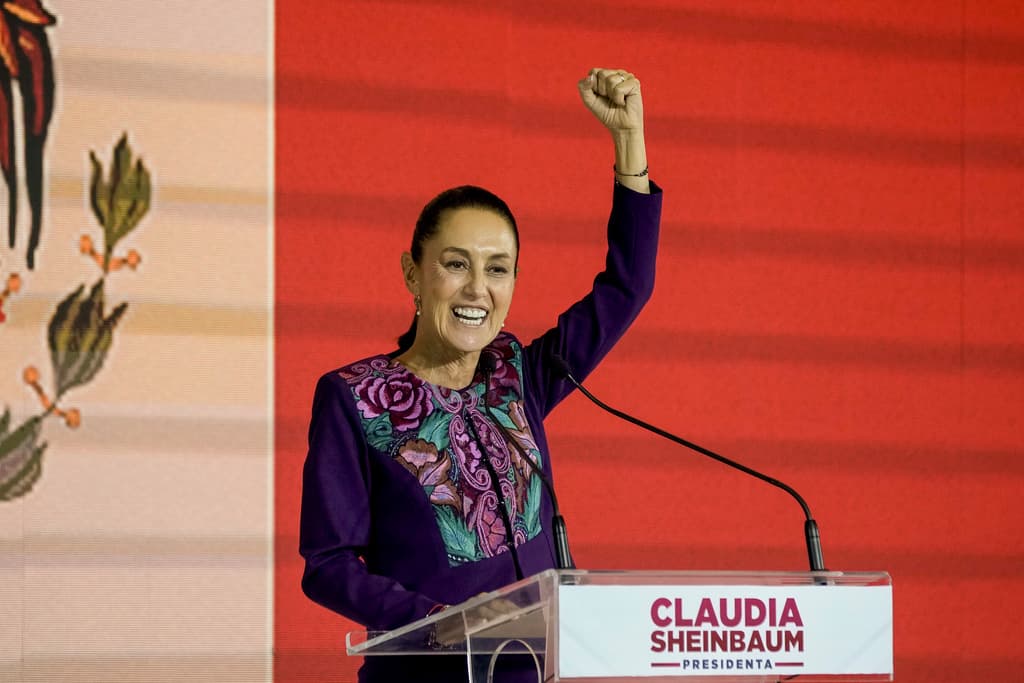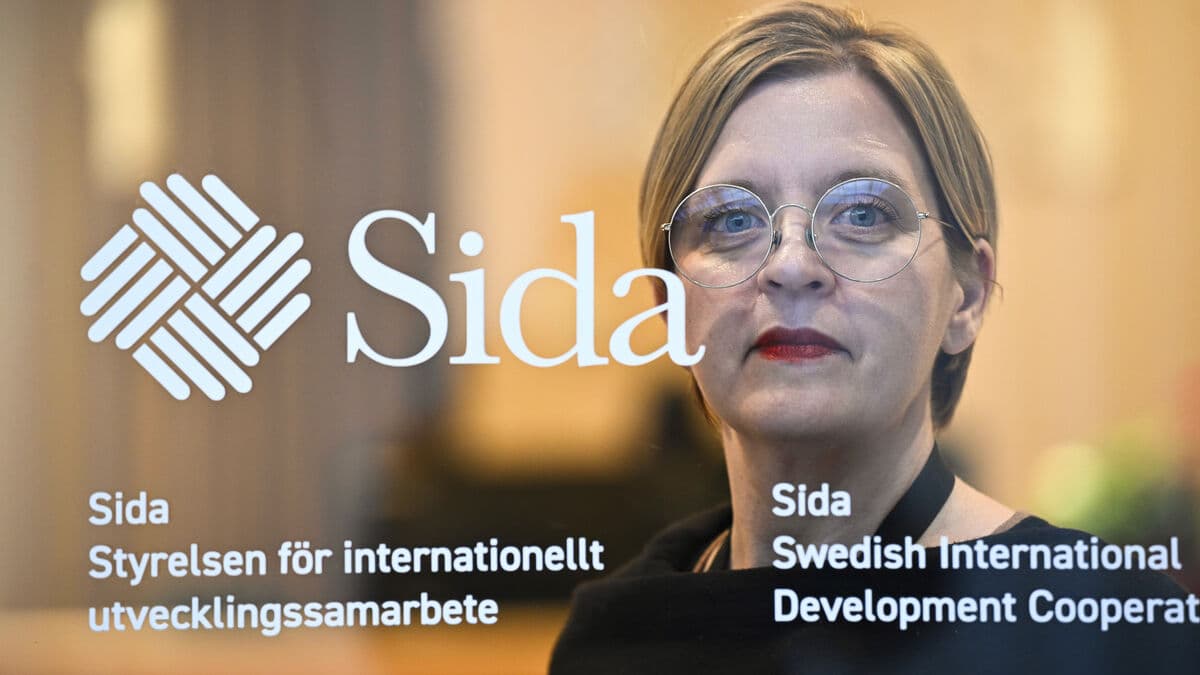Claudia Sheinbaum declares before jubilant supporters in Mexico City after Sunday's election.
She will now try to expand her successful recipe against gang violence from the capital Mexico City to the entire country.
But deadly violence has also shaped the election.
Sheinbaum received around 60% of the votes, while the nearest challenger Xóchitl Gálvez had to settle for just over 25%, according to the INE.
In her victory speech at the election rally, Sheinbaum says that both Gálvez and the third candidate in the election, Jorge Álvarez Máynez, have called her and acknowledged their defeat.
In her speech, she also touches on the perhaps biggest question of the election, the drug-related gang violence that has plagued the country for many years.
It is, however, a truth with modifications – in the election campaign, attacks on campaign meetings have led to the deaths of over 25 local and regional politicians, and many of their staff.
The governing party Morena, however, has managed to capitalize on the popularity of the current president, Andrés Manuel López Obrador, known as "Amlo", and Sheinbaum's years as mayor of the capital.
Sheinbaum has made it clear that she wants to continue on the same line as "Amlo", who has invested in social measures to address the root of the problem. The strategy has been called "hugs, not bullets", and has been criticized as too soft by Gálvez and other right-wing opposition.
Even if the successes are not as clear-cut on a national level, Sheinbaum has clear positive statistics with lower violence rates from her years as mayor. She led the capital, which has around 20 million inhabitants, from 2018 to the start of the election process last year.
Her security strategy focuses, among other things, on youth initiatives, a strengthened police force, and more effective cooperation between the judiciary and other authorities to prevent crime – rather than the harder military measures used by the right in the past.
"Amlo" is also popular, but in Mexico, presidents cannot seek re-election.
Born on June 24, 1962, in Mexico City (Ciudad de México). She comes from Jewish immigrants from Bulgaria and Lithuania.
She studied at UNAM, described as Latin America's largest university, in her hometown, specializing in environmental science. Known for her knowledge of climate change, and was one of the authors of an IPCC report on climate change published in 2007. During her studies, she met her future husband, Jesús María Tarriba, but they did not get married until 2023.
She has been called "the ice queen" by, among others, presidential challenger Xóchitl Gálvez, due to her cool demeanor.
She was elected mayor of Mexico City in 2018 and began several environmental initiatives to promote greenery, cycling, and public transportation. The metropolitan area with around 20 million inhabitants is known for extremely poor air quality, largely due to emissions.
Source: AFP






